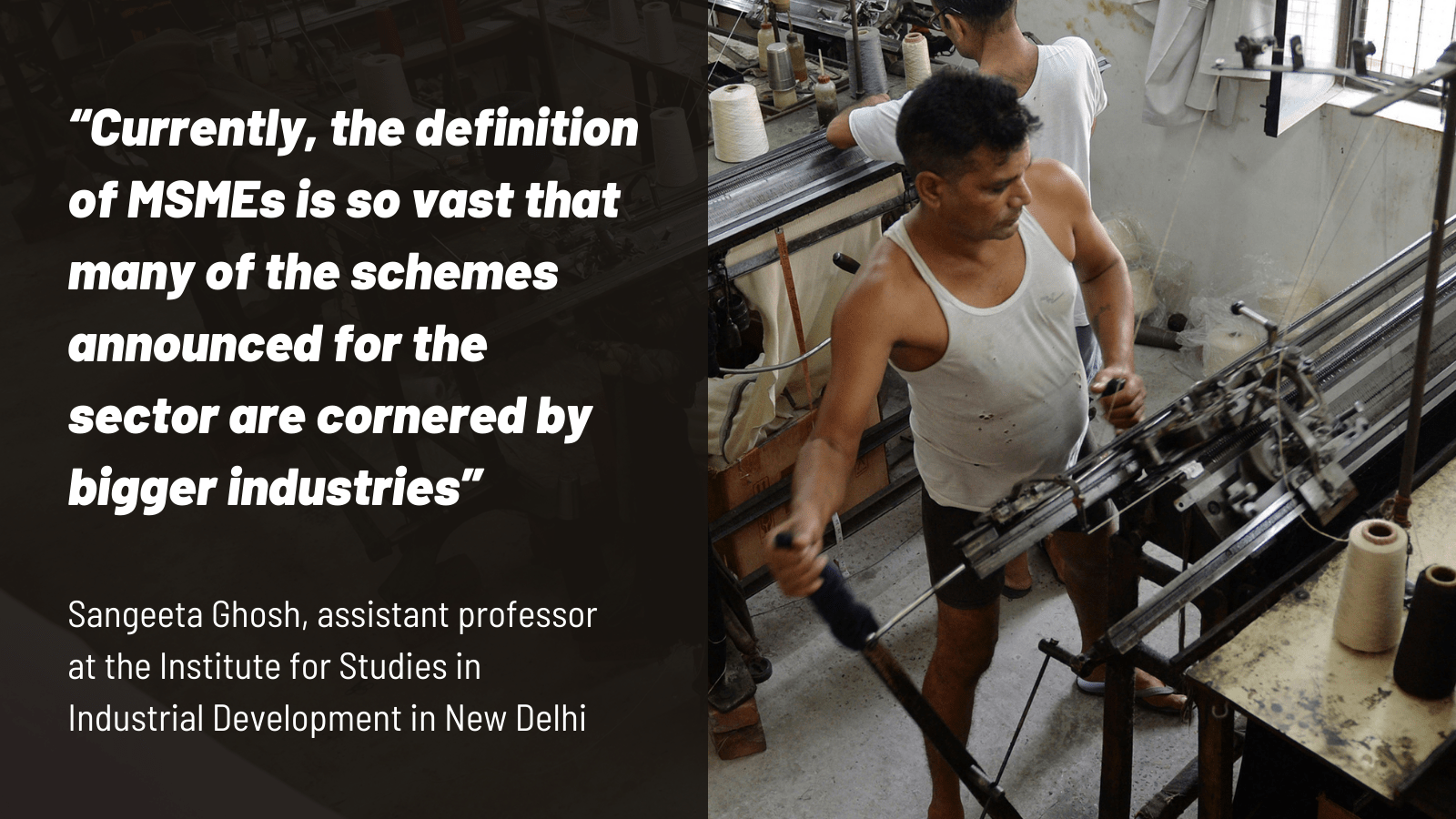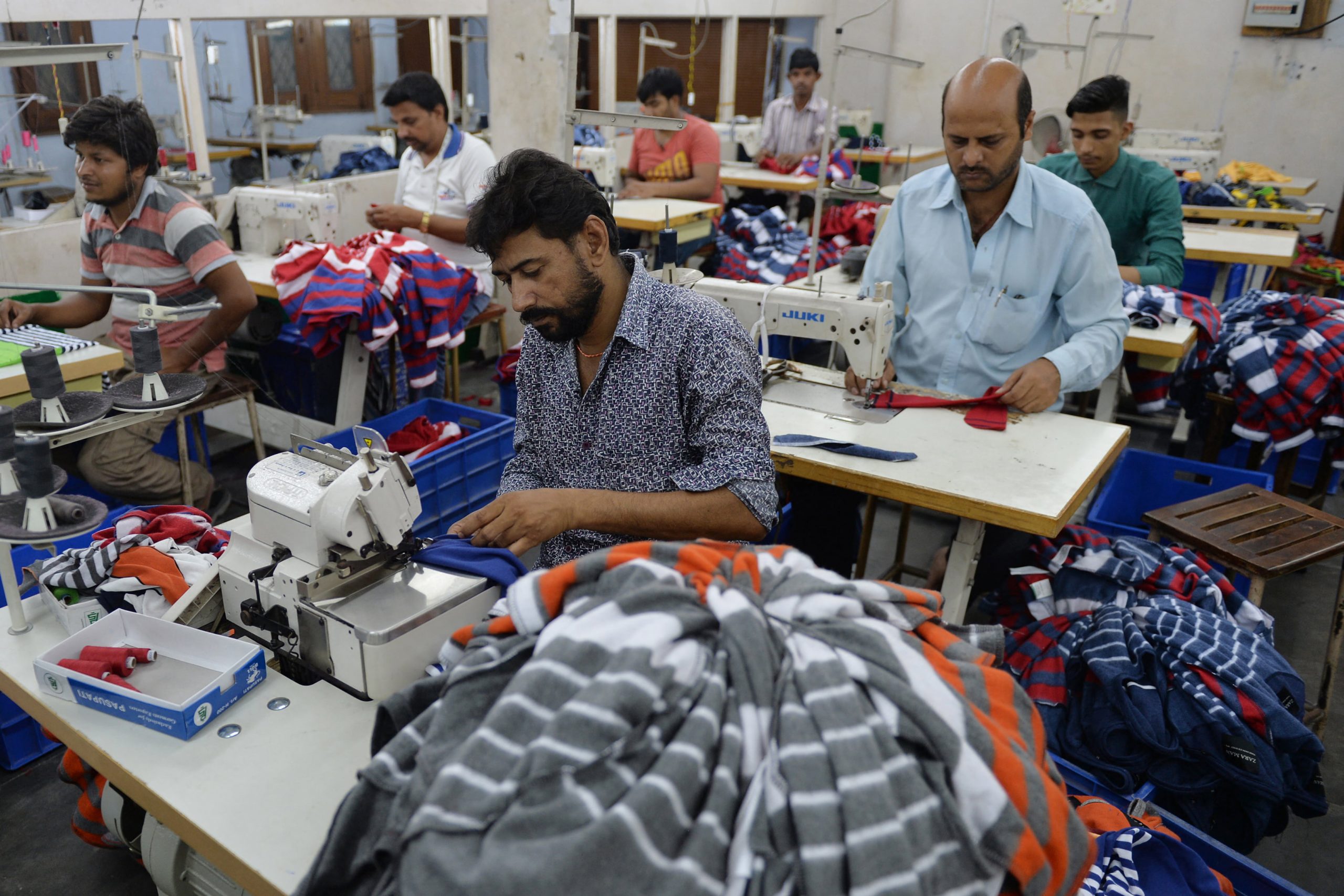As the pandemic ravaged India’s economy, steel equipment manufacturer Prakash Padikkal on the outskirts of Mumbai could do little about the unfolding crisis.
“Input prices have doubled, credit is no longer available, margins have become wafer-thin,’’ said Padikkal, whose company, Havistha Steelfab, supplies industrial steel equipment. “Businesses are no longer able to repay their debts.”
Padikkal’s company is just one of India’s 63.4 million micro, small and medium enterprises (MSMEs). The sector, which is the bedrock of the country’s economy, provides jobs to more than 120 million workers, accounts for almost a quarter of GDP from the services sector, a third of its manufacturing output and about 45% of its exports, according to the Confederation of Indian Industry, a trade association in New Delhi.
But two years of the pandemic have left it in crisis. A survey of 5,774 MSMEs by the National Small Industries Corporation in August 2020 revealed 9% had collapsed. That suggests as many as six million MSMEs across the nation were shuttered in the pandemic’s early stages.
There’s no indication that things have improved much since then. The sector’s bad loans rose 18% in 2021 to $16.81 billion, according to the Reserve Bank of India.
“The crisis is much deeper than what the government data projects,” said Girish Pandian, President of the Guindy Industrial Estate, an industrial association in Chennai with over 400 MSMEs as members. “So many business owners have had to sell their businesses and go to work for others.”
Dashed Hopes
With many MSMEs teetering on the brink, the country’s budget, unveiled on February 1, had rekindled hope for a stimulus package. Instead, all it provided were band-aids.
Finance Minister Nirmala Sitharaman’s decision to extend by a year the Emergency Credit Line Guarantee Scheme for indebted MSMEs until March 2023 is dismissed by Sangeeta Ghosh, an assistant professor at the New Delhi-based Institute for Studies in Industrial Development. The credit scheme, designed for companies that had previously borrowed from formal sources, is only of limited help, she says.
“It doesn’t help smaller businesses who don’t have the resources to borrow from formal credit sources, which is a large section of the country’s MSMEs,” she said.

Sitharaman’s announcement that 68% of the country’s defence budget or $11 billion, would be allocated for local manufacturers is a more significant boost for SMSEs, says Vinod Kumar, the president of India Small Medium Enterprises forum, an association of 86,000 business owners. This is the first time a specific portion of the country’s defence budget has been earmarked for local manufacturing with the government of Prime Minister Narendra Modi increasingly pushing foreign defence companies to manufacture locally.
“What this would do is to develop a supply chain for these bigger manufacturers,” said Kumar, “and much of that supply chain will consist of businesses from the MSME sector.”
ALSO ON AF: Paytm Share Price Down 55% and Analysts Say Worse to Come
Not a Quick Fix
The problem is that it’s not a quick fix. ”This will happen over time, and only if the MSME sector survives this tough phase,” he added. “For now, the government should focus on the short-term so that more industries don’t shut down.”
So what more can the government do to help?
Last month, it released a draft of the upcoming national policy for the country’s MSME sector. It proposed improving financial access for the sector, pushing for technological upgrades for small businesses and making it easier for them to do business by fast-tracking permits and improving transport logistics.
Pandian says the MSME sector hoped for the government’s intervention in regulating the prices of commodities like steel, copper and plastic, which have surged during the last two years.
“What the government needs to do is to rationalise and regulate the prices of key inputs like steel and plastic, which are raw materials for a bulk of the MSMEs,” Pandian said. “This one step will help reduce our costs and keep us afloat.”

Freeze Rates
In addition, Pandian said his association had asked the government to freeze interest rates on loans given to MSMEs for the next two years. That would help the sector find its feet again, he said.
Kumar said that the government must now focus on improving the conditions of the country’s rural businesses.
“Even now, we don’t get uninterrupted power, water and cheap logistics in the country’s rural areas,” Kumar said. “This needs to change so that MSMEs in the rural areas survive and flourish.”
The government needs to “urgently” target schemes at the most vulnerable, says Ghosh.
“Currently, the definition of MSMEs is so vast that many of the schemes announced for the sector are cornered by bigger industries rather than the micro-enterprises, which are the most vulnerable,” Ghosh said.
Once that is done, she said, the government should announce a wage-guarantee programme for workers in the sector.
“The government should look at providing a wage-guarantee by paying up to 30% of staff salaries for workers in these micro-enterprises, on the lines of what the UK government recently did,” Ghosh said, pointing to the UK government’s decision in March 2020 to pay up to 80% of salary for workers who earn up to £2,500 a month for three months, so that employers don’t lay them off.
With none of these measures in the budget, business owners are scared. Pandian said urgent steps are needed to stem the crisis because industries were “still shutting down.”
“The next 6 months are going to be crucial,” he said.
ALSO ON AF: India to Boost Infrastructure Spending in Annual Budget
























